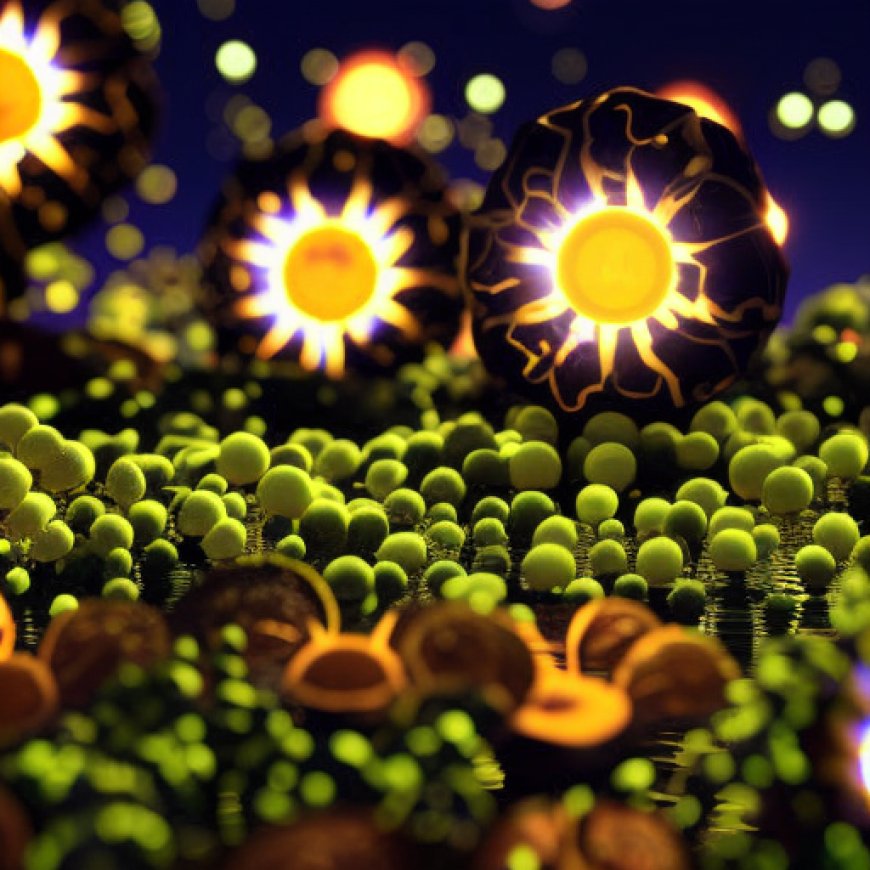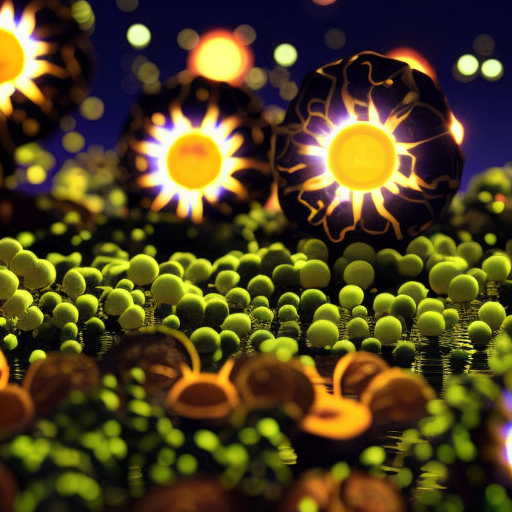The Evolution of Biofuel: The Significant Role of Synthetic Biology.
The Evolution of Biofuel: The Significant Role of Synthetic Biology. EnergyPortal.eu


The Evolution of Biofuel: The Significant Role of Synthetic Biology
The evolution of biofuel, a renewable energy source derived from biological materials, has been significantly influenced by the advancements in synthetic biology. Synthetic biology, a field that combines biology and engineering, has been instrumental in improving the efficiency and sustainability of biofuel production. This innovative approach has opened up new possibilities for the future of renewable energy, transforming biofuel from a promising concept into a viable alternative to fossil fuels.
First-Generation Biofuels
- The early stages of biofuel development focused on first-generation biofuels, such as ethanol from corn or biodiesel from soybeans.
- Challenges associated with these biofuels included competition with food crops for land and resources, and limited energy output.
Second-Generation Biofuels
- The need for more efficient and sustainable biofuels led to the exploration of second-generation biofuels, derived from non-food biomass like agricultural residues or dedicated energy crops.
- The conversion process of these materials into fuel was complex and costly.
The Role of Synthetic Biology
- Synthetic biology introduced genetically engineered microorganisms, such as yeast and bacteria, to break down the tough cell walls of non-food biomass and convert the resulting sugars into biofuel.
- This made the production of second-generation biofuels more efficient and opened the door to the development of third-generation biofuels, such as algae-based biofuels.
Advantages of Algae-Based Biofuels
- Algae grows rapidly, does not compete with food crops for land, and can be cultivated in various environments, including saltwater and wastewater.
- Algae can absorb carbon dioxide during photosynthesis, helping to mitigate greenhouse gas emissions.
Synthetic Biology and Algae-Based Biofuels
- Synthetic biology has enabled the engineering of algae to produce and secrete biofuels directly, eliminating the need for costly and energy-intensive extraction processes.
- This breakthrough has significantly increased the feasibility of algae-based biofuels, propelling them to the forefront of biofuel research and development.
Designer Biofuels
- Synthetic biology has also enabled the creation of designer biofuels with tailored properties, achieved through the genetic modification of microorganisms used in their production.
- Designer biofuels have the potential to outperform traditional fossil fuels in terms of efficiency and environmental impact.
The evolution of biofuel, driven by the advancements in synthetic biology, has revolutionized the renewable energy landscape. The ability to engineer microorganisms to convert biomass into biofuel more efficiently, and even to design biofuels with specific properties, has transformed biofuel from a simple alternative to a potentially superior solution to fossil fuels. However, challenges remain, including the need for further research to ensure the safety and sustainability of these biofuels.
In conclusion, the significant role of synthetic biology in the evolution of biofuel cannot be overstated. It has not only improved the efficiency and sustainability of biofuel production but also expanded the possibilities for what biofuels can achieve. As research continues and technology advances, the influence of synthetic biology on the biofuel industry is set to grow, paving the way for a more sustainable energy future.
SDGs Addressed
- SDG 7: Affordable and Clean Energy
- SDG 9: Industry, Innovation, and Infrastructure
- SDG 13: Climate Action
Targets Identified
- SDG 7.2: Increase substantially the share of renewable energy in the global energy mix
- SDG 9.4: Upgrade infrastructure and retrofit industries to make them sustainable
- SDG 13.2: Integrate climate change measures into national policies, strategies, and planning
Indicators Identified
- Proportion of renewable energy in the total final energy consumption (SDG 7.2)
- Investments in energy efficiency and clean energy technology (SDG 9.4)
- Number of countries with climate change policies and plans (SDG 13.2)
The article discusses the evolution of biofuel and its significant role in the renewable energy landscape. The issues highlighted in the article are directly connected to several Sustainable Development Goals (SDGs).
SDG 7: Affordable and Clean Energy is addressed as the article emphasizes the advancements in biofuel production, which is a renewable energy source. The use of synthetic biology has improved the efficiency and sustainability of biofuel production, contributing to the goal of affordable and clean energy.
SDG 9: Industry, Innovation, and Infrastructure is also addressed as the article highlights the role of synthetic biology in transforming biofuel production processes. The use of genetically engineered microorganisms and the development of designer biofuels demonstrate innovation in the industry and infrastructure of biofuel production.
SDG 13: Climate Action is connected to the article as biofuels, especially algae-based biofuels, have the potential to mitigate greenhouse gas emissions. The cultivation of algae for biofuel production can absorb carbon dioxide during photosynthesis, contributing to climate change mitigation efforts.
Based on the content of the article, specific targets under these SDGs can be identified:
SDG 7.2: Increase substantially the share of renewable energy in the global energy mix. The advancements in biofuel production, particularly through synthetic biology, contribute to increasing the share of renewable energy in the global energy mix.
SDG 9.4: Upgrade infrastructure and retrofit industries to make them sustainable. The use of synthetic biology in biofuel production processes represents an upgrade in infrastructure and industry practices, making them more sustainable.
SDG 13.2: Integrate climate change measures into national policies, strategies, and planning. The development and promotion of biofuels, including algae-based biofuels, align with the integration of climate change measures into national policies and strategies.
The article mentions or implies several indicators that can be used to measure progress towards the identified targets:
Proportion of renewable energy in the total final energy consumption (SDG 7.2). This indicator can measure the increase in the share of renewable energy, including biofuels, in the global energy mix.
Investments in energy efficiency and clean energy technology (SDG 9.4). This indicator can measure the level of investments made in upgrading infrastructure and industry practices to support sustainable biofuel production.
Number of countries with climate change policies and plans (SDG 13.2). This indicator can measure the adoption and implementation of climate change policies and plans that promote the use of biofuels and other renewable energy sources.
| SDGs | Targets | Indicators |
|---|---|---|
| SDG 7: Affordable and Clean Energy | Increase substantially the share of renewable energy in the global energy mix (7.2) | Proportion of renewable energy in the total final energy consumption |
| SDG 9: Industry, Innovation, and Infrastructure | Upgrade infrastructure and retrofit industries to make them sustainable (9.4) | Investments in energy efficiency and clean energy technology |
| SDG 13: Climate Action | Integrate climate change measures into national policies, strategies, and planning (13.2) | Number of countries with climate change policies and plans |
Behold! This splendid article springs forth from the wellspring of knowledge, shaped by a wondrous proprietary AI technology that delved into a vast ocean of data, illuminating the path towards the Sustainable Development Goals. Remember that all rights are reserved by SDG Investors LLC, empowering us to champion progress together.
Source: energyportal.eu

Join us, as fellow seekers of change, on a transformative journey at https://sdgtalks.ai/welcome, where you can become a member and actively contribute to shaping a brighter future.







